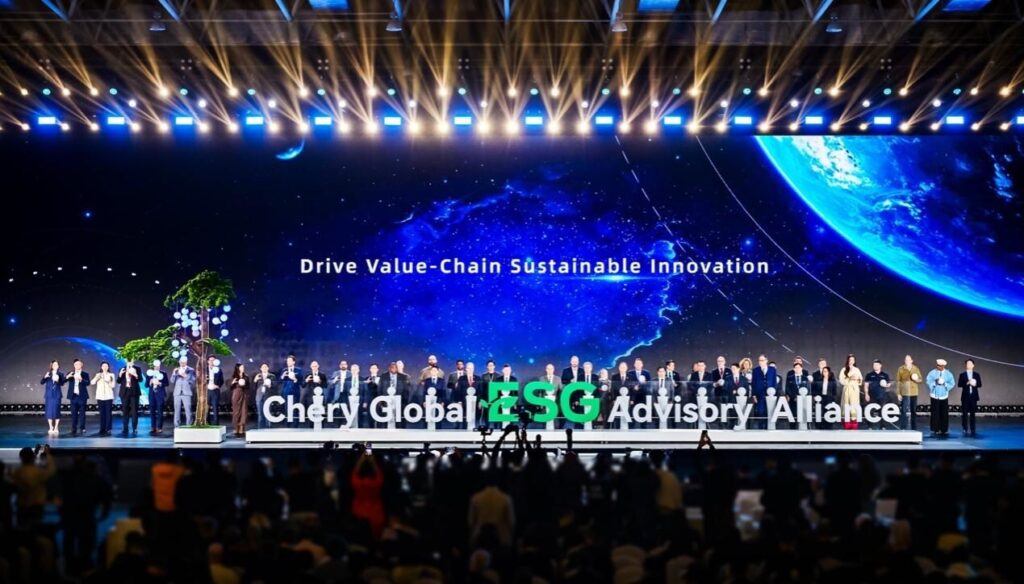
the 2025 Chery International User Summit built an open global platform
On October 25, 2025, the Chery International User Summit in Wuhu, China, marked a significant step towards sustainable mobility. The event, centered around the theme “Co-Create • Co-Define,” showcased Chery Group’s advancements in automotive technology while emphasizing the collective responsibility of the industry in addressing climate change. The summit provided a platform for over 3,000 participants, including users and industry leaders, to collaborate on defining the future of mobility.
Building a Sustainable Automotive Ecosystem
In a world increasingly focused on carbon neutrality, Chery is transforming its approach from traditional hardware competition to a model of ecosystem co-creation. The company has integrated Environmental, Social, and Governance (ESG) principles into its core strategy, striving to lead the automotive industry in sustainable practices. During the summit, Chery announced the launch of the upgraded Chery Global ESG Advisory Alliance with notable figures, including Ban Ki-moon, the 8th Secretary-General of the United Nations and Chery’s Global ESG Honorary Advisor.
Ban Ki-moon highlighted the importance of leadership in tackling global challenges, stating, “Chery’s commercially successful ESG practices could offer a viable new path for the larger automotive industry to forge win-win victories for both business and societal value.” His remarks underscored Chery’s commitment to concrete actions, such as establishing “Green Factories” and developing new energy technologies, which demonstrate how broad sustainability goals translate into actionable steps.
Additionally, Chery announced a renewed partnership with UNICEF, pledging an additional USD 6 million over three years to enhance learning environments for children globally. This partnership reflects Chery’s dedication to creating inclusive and healthy communities.
Innovative Technologies for a Greener Future
The summit showcased over ten groundbreaking technologies, reinforcing Chery’s commitment to innovation. These included next-generation hybrid engines, autonomous driving models, and even humanoid robots capable of performing tasks like serving drinks. Such advancements illustrate Chery’s dedication to merging technology with human needs, with products designed to enhance the user experience.
Chery’s commitment to sustainability has also led to its recognition as the first Chinese automaker to receive the Sino-Europe Automotive Carbon Footprint Mutual Recognition Certificate. This certification validates Chery’s ESG system, which focuses on low-carbon transformation, value chain co-creation, and integrity-driven growth.
At the summit, attendees had the opportunity to engage directly with Chery’s products, testing vehicles on professional tracks and participating in design workshops. This level of user involvement emphasizes Chery’s approach to co-creation, where users play an active role in shaping the brand and its future.
“We are not here to listen to stories—we are here to write them,” remarked a dealer from Brazil, encapsulating the spirit of collaboration at the event. Feedback from users is systematically gathered and integrated into Chery’s product development, ensuring that customer insights drive innovation.
As the automotive industry faces significant transformation, Chery’s 2025 International User Summit stands as a testament to the company’s vision of evolving from a traditional automaker to a leader in intelligent mobility ecosystems. Chairman Yin Tongyue expressed hopes for the company to advance low-carbon technologies while collaborating with global partners, emphasizing the importance of shared technology and co-created value in achieving mutual growth.
Chery’s initiatives reflect a broader shift in the automotive sector towards sustainability and user engagement, setting a precedent for future practices worldwide. Through its commitment to innovation and collaboration, Chery aims to contribute positively to both the environment and society, demonstrating that the future of mobility can be both intelligent and sustainable.







